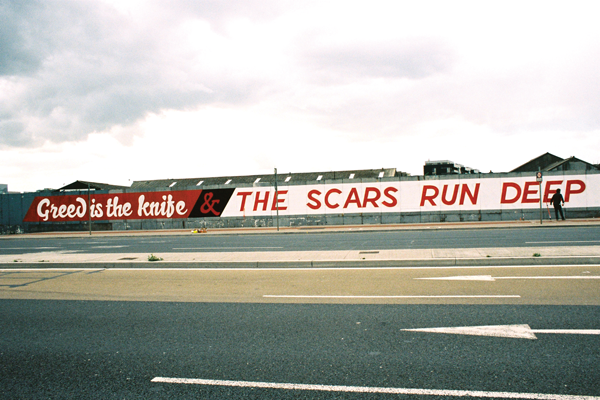Triple A shocks
The causes of the Great Recession risk being repeated, Patrick Love contends, as he reviews the downturn. Globalisation multiplies the effect of new shocks in a way never seen previously.
Financial crises and recessions are nothing unusual. There were 195 stock market crashes and 84 depressions between 1860 and 2006. However, the 2007 crisis marks a turning point in that for the first time the entire world was affected. The trigger was the collapse of Lehmans, which called into question one of the unspoken assumptions of global finance: some banks are too big to fail. This assumption was based on a double guarantee. First, big banks had enough assets to cover potential losses. Second, if not, the government would step in. Both guarantees proved to be worthless for Lehman’s, but when the entire financial system threatened to implode, states acted quickly to restore the second guarantee.
Governments committed $11.4 trillion to saving the system, the equivalent of the 2007 GDP of Japan, the UK, Germany and France combined. That represents a worst case scenario, and includes guarantees that may never be called on or the cost of purchasing assets and equity, whose value may go up. Supporting the banks is a work in progress, so the final cost won’t be known for years. What is certain, is that the initial crisis led to the sovereign debt crisis we’re seeing now. And in addition to shorter term concerns, the legacy of sovereign debt could interact with increased pressures on public finances caused by population ageing.
At the other end of the age scale, there are fears that the crisis could create a ‘lost generation’ of alienated, marginalised young people, given how long it usually takes employment to get back to pre-recession levels. For example, it took the US job market seven years to recover from the previous recession.
Even lost generation scenarios assume that the recovery will be relatively long lasting, and the social unrest and other consequences of frustrated hopes will be relatively circumscribed. But ‘Make Markets be Markets’, by (among others) Robert Johnson of the UN Commission on Financial Reforms, argues that the economic system is in the grip of a “doom cycle”: banks behave recklessly during the boom, confident in the knowledge that during the bust the state will clean up.
Although sound corporate governance and a strong risk management culture should enable banks to avoid excess leverage and risk taking, there will always be players eager to push complex products and trading beyond the needs of the real economy. Indeed, such activity is once again driving the rapid profit growth of some banks, with little learned from the past.
Critical links
The crisis shows how some aspects of the world economy can be both positive and negative, notably interconnectedness. Global linkages help the world to grow richer, but they also facilitate the spread of shocks. Securitisation for instance distributed risk across a larger number of players, with two major consequences. First, it increased interconnectedness among financial institutions themselves, and of these institutions across countries. Second, it gave the impression that risk had diminished. It hadn’t, but individual shares in the risk and responsibility for managing it had become diffuse, creating a false sense of security.
The financial crisis spread rapidly to the real economy, with stock market collapses, decreases in business and consumer confidence, a credit crunch, a sudden contraction in international trade, and a sharp drop in investment.
However, the BRICs (Brazil, India, China, Russia) fared better than most. Their emergence as new global players will transform the geopolitical landscape, with impacts potentially as dramatic as the decline of the European empires and the rise of the United States. How they exercise their growing power and whether they relate co-operatively or competitively to other powers in the international system are key uncertainties.
The one major certainty is that there will be other shocks, with three characteristics. The fact that a few people such as financial market traders can provoke major disruptions reveals an aspect of today’s global socio-economic system that will grow in importance: asymmetry. Another example would be the panic caused by the fear of a small country like Greece defaulting on its debt. The reason is that the interconnectedness mentioned earlier can amplify relatively small, local problems (such as sub-prime mortgages) into systemic risks.
In addition to asymmetry and amplification, a third ‘A’ is likely to become more important: asynchronicity, for example lags between economic activity and commodity prices or decoupling of countries from swings in the global economy. Asynchronicity undermines the case for global solutions to a number of problems.
The Great Recession was due to the unravelling of tensions in the system. These tensions were not reduced thanks to any government policy, but built up until they exploded into a systemic shock that caused misery for billions of people and would have destroyed the financial system if states hadn’t pumped trillions of dollars into the economy. Is pay up and hope things improve the best we can do?
Profile: Patrick Love
Patrick Love is Senior Editor with OECD Publishing and the author or co-author of five books in the OECD Insights series, including one on international trade and one on the economic crisis. He is currently working on the OECD Green Growth Strategy and the OECD project on future global shocks. Patrick blogs at www.oecdinsights.org






